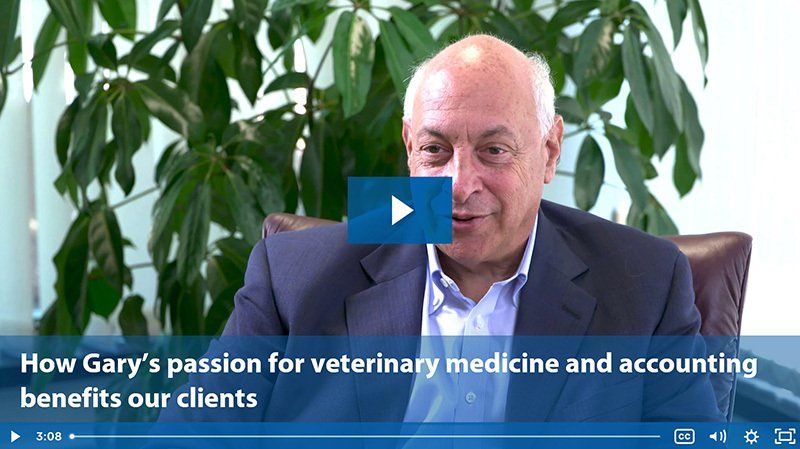Veterinary medicine was really interesting to get into for me. I had always had dogs and loved having a pet in the house. My wife convinced me actually to have two pets in the house. And now we have complementary golden retrievers that we just adore and love and have had that for a long time. It complements the number of years I've been working in veterinary medicine now, which is about 30 years or more. We are very passionate about making sure that we address the issues of the industry and the issues of practitioners and making practitioners successful.
It's been really important for us. We try to stay up on everything important in veterinary medicine. We subscribe to a lot of publications so we know what's going on in the industry. We attend veterinary conferences, which I don't think you'll find that many veterinary accountants or others actually do. And, you know, we want to make sure that we have a clear understanding of exactly what's going on in the profession.
We take the time to get to know our practices and our practitioners who own those practices, to understand their wants and needs as well as what we can do to make sure we're accomplishing or meeting those needs. We don't just give you the numbers when we talk to you about numbers. We want you to understand the numbers. And we spend a lot of time coaching practices and practitioners as to how to understand numbers and what to do with them to help them make their practices successful.
And that's really the end game to what we do. And what we're out to accomplish is to make practices as financially successful as possible. What does that mean? Well, we need to instruct practices as to not only just understand the numbers, but what are the industry benchmarks? What are the industry averages? For instance, where should you be at from a profitability standpoint?
How much net profit, not just total sales, should you have to apply yourself financially successful in the veterinary profession? We're qualified to get you to understand what your financial strengths and weaknesses are. Where do we see the good going on? Where do we think they need to improve and to direct you through our coaching? In that respect to make sure that you wind up with the result you're looking for.
Every practice has their own personality, as they tell many. We want to understand what that personality is, just like us as people have our own personalities. You know, everything related to your personality as a practice owner is traits arrived through what you do and how you do it into your practice and how it works its way down in your practice.
And so that practice personality is important for us to understand. How does it relate to the numbers? How does it relate to what you like to do and don't like to do? And we want to make sure that we're in sync, providing not only this financial management, but also the practice management side, the amount of credits and experience so involved with so that we're fulfilling our client need with the amount, correct amount of services and the right amount of services that really bring our clients into the right place in terms of what they're looking for.








